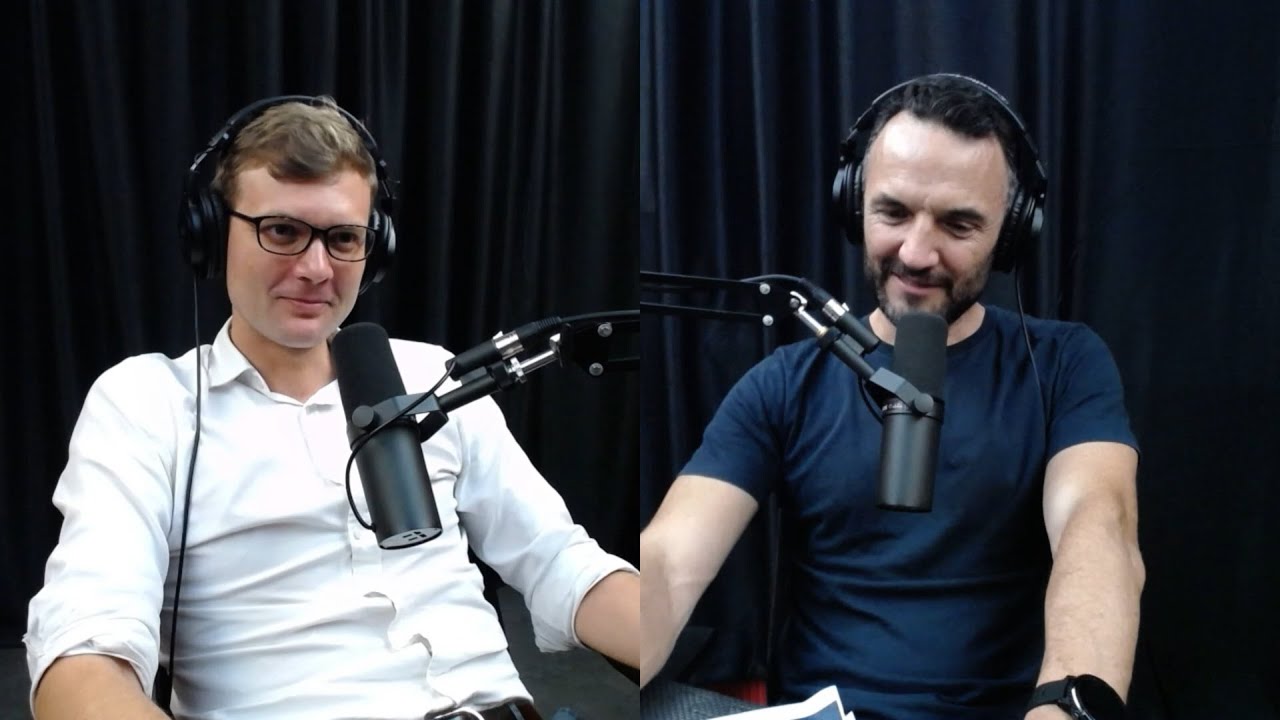Radu Palamariu is the managing director of Alcott Global Asia Pacific and has been working in consulting and executive search roled for the last decade. He also hosts the podcast “Leaders in Supply Chain”, where he gets to picks the brains of Industry experts.
You’re in executive research and you are the managing director of Alcott Global Asia Pacific. What is executive research and what do you focus on with Alcott Global?
Radu Palamariu: Executive search is simply put recruitment of executive-level positions (VP level and C level) in multinationals and local conglomerates. We mostly focus on three core industries, namely transportation, healthcare and industrial. With a strong focus on end to end supply chain roles, from CEOs to COOs, Chief Procurement Officers, Chief Supply Chain Officers, Chief Manufacturing Officers, Heads of Logistics, etc.

You’ve been at management consulting, and then Oracle and Monster before you started your career-path in executive search – What led you to this decision and what do you like about executive search?
Radu Palamariu: I can’t claim that I planned much the move – I was more excited about the prospect of setting up a business. As when I started in executive search, I was the number one employee in Asia-Pacific of a top global brand, with the agenda to expand across the region.
But looking back I can say it has somewhat been a very natural transition for me. As it builds on my existing skills of consulting and understanding how businesses work, knowing how to engage various stakeholders and trying to make organizations functions better.
This is possible by finding the right executive to join the company, and in order to do this one requires a deep consulting approach to understand the needs of the company. So, to be able to properly screen the right potential profiles.
Moreover, we are now opening up a new arm focused on management consulting; hence it is kind of closed circle for me coming back to where I started.
Now you work for some of the biggest logistics and manufacturing companies. What are the major challenges they face around recruiting talent?
Radu Palamariu: Historically, the logistics and manufacturing sector has not been seen as an exciting field.
Hence one challenge is changing the narrative and storyline so to make it appealing for young people to join. Which is slowly changing, especially because e-commerce and startups are creating new compelling stories. But there is still a lot more that companies need to do in terms of sharing their vision online so that people understand how they are making a contribution to the world and why they should join in.
Secondly, would say right now we are seeing a convergence of digital skills into every industry – which means that there is a high demand for this type of skills. And the battle for talent has never been tougher. It also means companies have to compete with likes of Google and Facebook – as for example skills like machine learning or AI or automation are pretty much needed everywhere. So, it is tough.
For executive level, the challenge is finding that combination of executives that have high people skills, understand well how to take an organization on a process of change management (as change is the only constant!) as well as have a good vision of how to get there.

Everywhere we read about the battle between digital and more traditional freight forwarders. How can established companies improve their employees’ digital skills to compete with purely digital players?
Radu Palamariu: It always starts at the top, so the first step is for the management of the established freight forwarders to show they are digital-savvy. And get the organization onboard change, why digital is important and to embrace it.
Secondly, there are actually more and more solutions out there – and all of the big 3PLs are trying to get either buy SaaS services or build their own. So again, I guess the process of driving adoption and change management is key. Getting people on board with the change rather than shoving it down their throats – because that usually doesn’t work. And making it a compelling story for why it is crucial to change.
You have more than 30k connections on LinkedIn – how did you build your community and how can logistics companies boost their employer brand?
Radu Palamariu: It mostly boils down to two things I would say. On the one hand by adding value to people so they want to follow you. And on the other hand by having patience to do it over and over again
I am a curious person by design and love learning. And hence I started by sharing with others what I was learning – and putting our articles – and then I realized it helps a lot of people so kept doing it. And we now have a great content team that helps me, so we are trying to do different things from videos about HR and how to best prepare. To our “Leaders in Supply Chain podcast” where we interview industry executives (btw your audience should listen to it, it is a great industry sharing resource! J). To articles and reports both on the industry and on HR and state of employment.
So, all these pieces of content over time have gotten industry professionals interested in us and I guess that played an important role to why we managed to build our community of followers on LinkedIn and other platforms.

